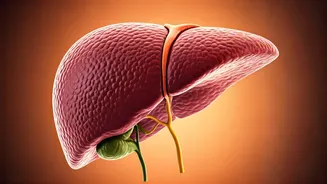Appetite and Mood Shifts
Consuming sugar regularly can subtly alter how your body signals hunger and fullness, potentially leading to appetite changes. This can manifest as an increased
desire for food, even when your body doesn't necessarily require it. Additionally, sugar's impact extends to mood regulation. The initial sugar rush can be followed by a crash, affecting energy levels and potentially contributing to feelings of irritability or sadness. The cycle of high and low blood sugar can make maintaining stable moods more challenging, influencing overall emotional well-being. Understanding these effects is the first step towards making informed choices about sugar consumption and its impact on both physical and mental health.
Skin's Radiance Diminishes
One often-overlooked consequence of regular sugar intake is its impact on skin health. Excessive sugar consumption can accelerate the glycation process, where sugar molecules attach to proteins, including collagen and elastin. These proteins are vital for maintaining skin elasticity and firmness. When glycated, collagen and elastin become damaged, leading to a loss of skin's natural glow and potentially contributing to premature aging, with wrinkles and fine lines becoming more prominent. Furthermore, sugar can exacerbate inflammation throughout the body, which may manifest as skin conditions like acne or eczema. By reducing sugar intake, individuals can support healthier, more radiant skin.
Energy Fluctuations Unleashed
The relationship between sugar intake and energy levels is a rollercoaster. When sugar is consumed, the body experiences a rapid spike in blood sugar, which provides a quick burst of energy. However, this effect is often short-lived. Following the initial surge, blood sugar levels quickly plummet, leading to feelings of fatigue, sluggishness, and difficulty concentrating. This cycle of highs and lows can disrupt daily activities and leave individuals feeling drained throughout the day. Consistent sugar consumption can disrupt the body's natural energy regulation processes. This can make it difficult to maintain consistent energy levels without the help of multiple sugary snacks. Adopting a balanced diet can help to stabilize energy levels and reduce reliance on sugary foods for a quick energy boost.
Cravings Intensify
Regular sugar consumption can hijack your body's natural reward system, leading to stronger cravings. When sugar is consumed, the brain releases dopamine, a neurotransmitter associated with pleasure and reward. This reinforces the desire for more sugar, creating a cycle of cravings. The more sugar you eat, the more your body adapts to its effects, requiring increasing amounts to achieve the same level of satisfaction. This can make it challenging to reduce sugar intake and can lead to a constant cycle of trying to satisfy cravings. These cravings can contribute to overeating and make it difficult to maintain a balanced diet. Recognizing and addressing these cravings is important to help break the cycle and promote healthier eating habits.
The Bloating Effect
Excessive sugar consumption can contribute to bloating and digestive discomfort. Certain sugars, such as fructose, can be difficult for the body to fully digest, particularly if consumed in large quantities. When undigested sugar reaches the large intestine, it can be fermented by gut bacteria, producing gas. This gas buildup leads to bloating, cramping, and discomfort. Additionally, sugar can affect the balance of gut bacteria, potentially promoting the overgrowth of harmful bacteria and exacerbating digestive issues. High-sugar diets can therefore disrupt the gut microbiome, making digestion less efficient and causing various gastrointestinal symptoms. Understanding this link allows for more informed dietary choices to support better digestive health and reduce bloating.



















